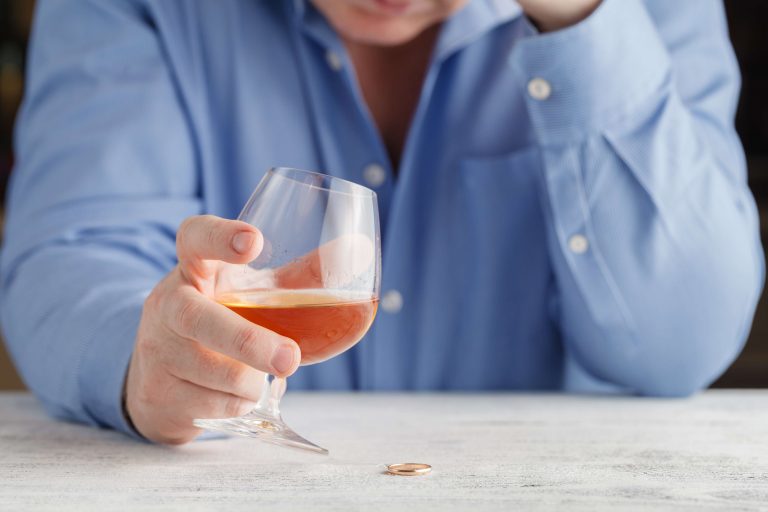It is no longer a matter of the depth of narcosis and the severity of withdrawal. Like a cluster bomb, the drug bears other poisons that wreak havoc on living tissue, piercing and charring it. Wherever and whoever is involved in the clandestine trade is unsqueamish about what else goes into their product, to cut or contaminate it. One coach recalls witnessing senior players in their thirties celebrate two years of being https://lublusebya.ru/raznoe/lublu-34861-pochemu-nelzja-est-ostyvshee-mjaso snus-free, reminded of the landmark by the rehab app on their phone. “Typically, ADHD is seen as inattention but the true representation is that they have attentional difficulties and can actually hyper-focus on the things they care about — until the novelty wears off. It is why some players will be late for training and can appear disengaged as they’re not motivated by it but can turn it on in a match when it counts.
Are addictions diseases or choices?
- As soldiers left the strange mixture of fear, boredom, combat tensions, and poor living conditions of the battle zone in the early 1970s, the vast majority—95 percent, according to studies—left their addiction behind, despite opportunities to become readdicted.
- The insurance companies, pharmaceutical and biomedical industry, hospitals, physicians, politicians, and patients all have a dog in the fight.
- To improve patient care and unify the field of neurology, informed decisions must be based on comprehensive data.
From a contemporary neuroscience perspective, pre-existing vulnerabilities and persistent drug use lead to a vicious circle of substantive disruptions in the brain that impair and undermine choice capacities for adaptive behavior, but do not annihilate them. Evidence of generally intact decision making does not fundamentally contradict addiction as a brain disease. Attempts to resist these compulsions result in increasing and ultimately intractable anxiety [99].

Chronic and relapsing, developmentally-limited, or spontaneously remitting?
And the prefrontal cortex, the area of the brain responsible for rational decision-making, judgment, and control of behavior gets weakened, its connections to other parts of the brain pruned away. The act of repeatedly using a highly pleasurable experience—drugs, gambling—alters neurons; they adjust their wiring to become increasingly efficient at the experience. As problematic as the consequences can be in someone’s life, the process can, through effort, be reversed. Recovery also relies on neuroplasticity; changing behavior rewires the brain.
More in Conditions

We can be mad at people who disappoint us or people who hurt us and there are multiple diseases where that happens. People get mad when their mate gets Alzheimer's and not because they don't love their mate but because it's frustrating and they lose memories and there's a lot of hurt and things like that. The other thing is they're arguing about responsibility and they're saying something like, "Oh, you're saying this person didn't do anything to bring this about," or that they deserve a blank check for https://www.chad-caleb.info/page/86/ everything they do. Whether you think addiction is a disease or not, everyone can agree that addiction is a serious problem that adversely affects the lives of the people using substances as well as the people in their lives. The suffering that comes along with addiction can be immense, but treatment offers a ray of hope for the future. People who have an intensely good experience their first time using begin to learn that drugs can make them feel great, and the foundations of addiction are set.

Epidemiological data are cited in support of the notion that large proportions of individuals achieve remission [27], frequently without any formal treatment [28, 29] and in some cases resuming low risk substance use [30]. These spontaneous remission rates are argued to invalidate the concept of a chronic, relapsing disease [4]. The ambiguous relationships among these terms contribute to misunderstandings and disagreements. Fundamentally, we consider that these terms represent successive dimensions of severity, clinical “nesting dolls”.
“A doctor I know had just joined one of the top Premier League clubs and saw there was a huge snus problem,” Dr Chris James, a clinical psychologist working in elite sport, tells The Athletic. Many players from the region have introduced it to team-mates in the UK but tobacco snus is banned from sale in the UK. In its place, all-white nicotine pouches have swamped the dressing rooms of professional football clubs, with brands such as Siberia and Killa selling multiple different flavours on their branded tins. Snus is a smokeless tobacco product placed between the lip and gum that originated in Scandinavia and gradually became a mass-market product after Sweden implemented a ban on smoking indoors in 2005. It is socially ingrained in everyday life there but also within football culture, to the extent physios have been known to run on with a replacement pouch for a player, while board members would excuse themselves from meetings to resupply.

People who are not able to “will” their way out of their addiction are often blamed and shamed for their disorder, causing them to feel worthless or broken. Treating people with substance use disorders this way is immoral since it would be appalling to treat someone negatively just because they have heart disease, diabetes type 2, or cancer. With these negative attitudes, people are less likely to seek treatment for their addictions, potentially leading to more senseless and preventable overdose deaths.
Drug addiction. Is it a disease or is it based on choice? A review of Gene Heyman's Addiction: A disorder of choice.
Yes, it is clear that most people whom we would consider to suffer from addiction remain able to choose advantageously much, if not most, of the time. However, it is also clear that the probability of them choosing to their own disadvantage, even when more salutary options are available and sometimes at the expense of losing their life, is systematically and quantifiably increased. There is a freedom of choice, yet there is a shift of prevailing https://hometi.ru/en/supply-and-drain-water/est-li-polza-v-sale-svinoe-salo-sostav-polza-i-vred-dlya-organizma-i.html choices that nevertheless can kill. Critics question the existence of compulsivity in addiction altogether [5–7, 89], typically using a literal interpretation, i.e., that a person who uses alcohol or drugs simply can not do otherwise. While there are differing opinions on whether addiction is a disease or a choice, it is important to recognize that addiction is a chronic, relapsing brain disease that requires medical intervention and support.
